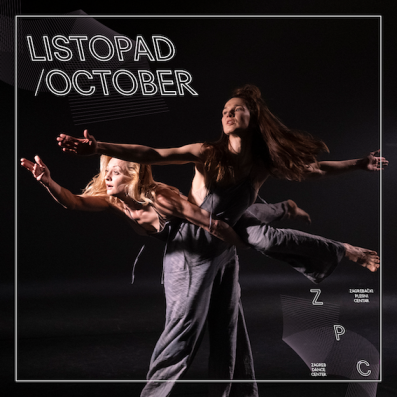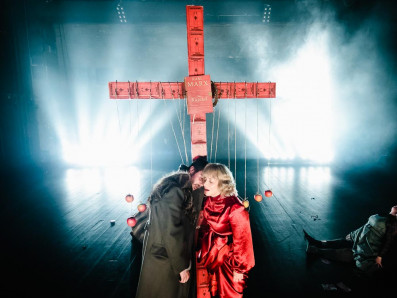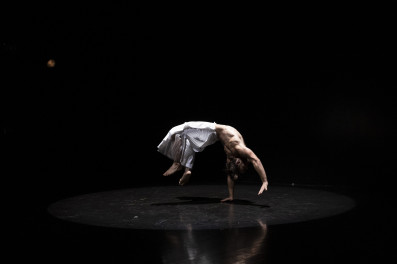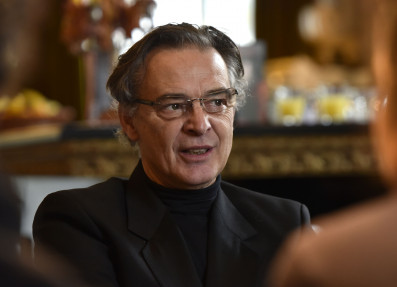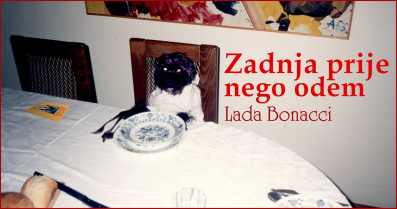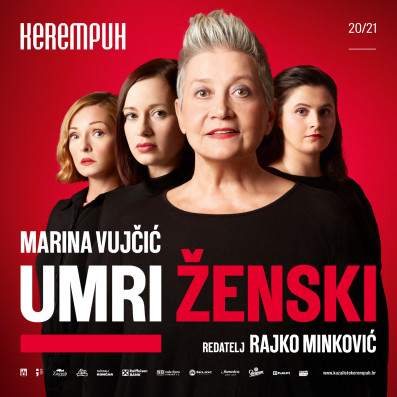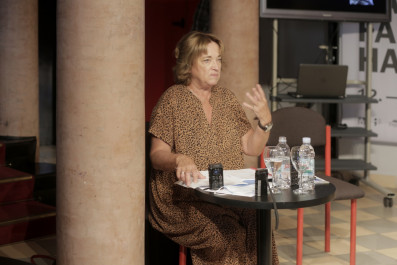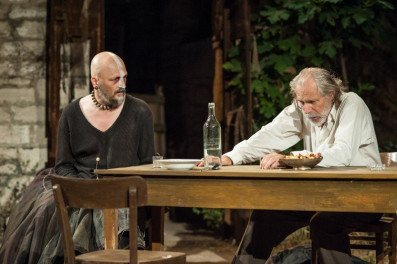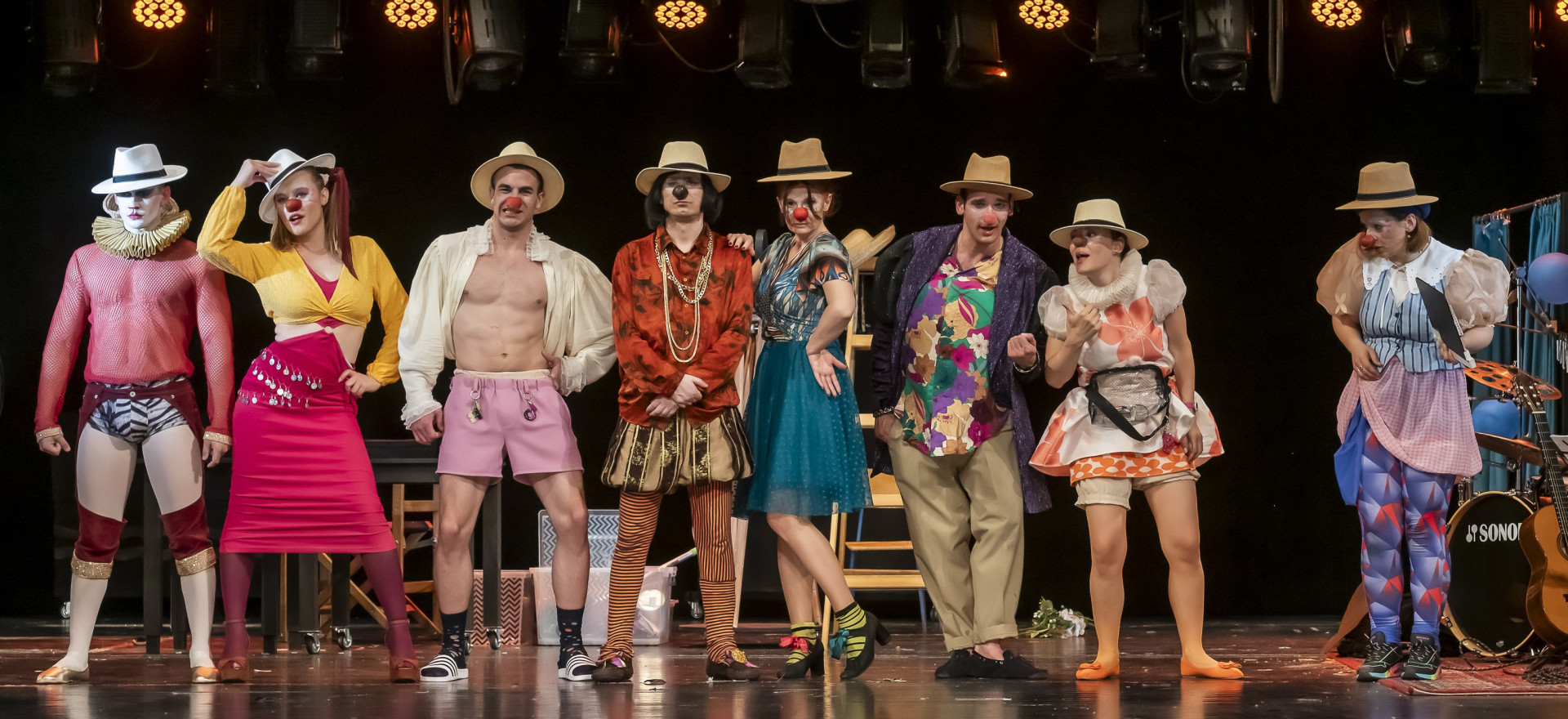
Ro and Juju: Lee Delong's Clownish Revamp of Shakespeare's Classic
"A Vibrant Fusion of Folk Tale and Contemporary Issues at the National Theater Sarajevo"
After a lengthy and diverse season at the National Theater in Sarajevo, ranging from solid productions to outdated and monotonous new plays, the production Ro and Juju (clown Romeo and Juliette) emerged as the grand finale. One may question the relevance of a binary story depicting heterosexual underage lovers today. However, upon examining the vibrant and skilled cast of BH theater stars such as Dino Bajrović, Aida Bukva, Mona Muratović, Mediha Muslinović, Nerman Mahmutović, Merima Lepić Redžepović working with talented newcomers such as Faruk Hajdarević, Alen Konjicija, Merjem Šiljak the direction by Lee Delong, and the musical arrangement by Darko Rundek, it becomes clear that not everything is as straightforward as it may initially appear.
Lee Delong, drawing upon her extensive experience as a clown, guided actors and actresses from different generations in embracing the mannerisms and fundamentals of clown artistry. Together, they crafted a multi-layered folk tale that both entertains and offers commentary on the realms of film and theater, instilling a subtle sense of hope in love without veering into naivety.
The production offers a compelling twist by envisioning ordinary working-class individuals from a film set (cleaning ladies, technicians) assuming the roles of affluent families and their naive young lovers. This departure from convention revitalizes Shakespeare's timeless narrative, highlighting primary emotions and everyday realities. By placing these working-class individuals, now actors, at the forefront, the play delves into conflicts ranging from contemporary issues like the "Me Too" movement in the film industry to reflections on the marginalized status of artists today, all while exploring the complexity of love—both profound emotional connections and raw physical desires.
A vibrant circus of ideas and concepts, drawn from extensive theorizing on Shakespeare's plays and their adaptations in film and theater, converge into a cohesive and delightfully chaotic pot of clownish mischief. Themes like the Monteques as constructions and the Capulets as deconstructions, alongside the exploration of masks versus faces and the reversal of character roles (what if this is a mafia/street story?), are all vividly portrayed. As surreal as it sounds, these elements work together harmoniously. The reason? Likely the meticulous work and communication between the director and the cast.
Each actor embodies one of the well-known archetypes and stereotypes of clowns (ranging from classic tramp clowns and whitefaces to more obscure types that we all recognize on some level). The skilled management of these embodied characters ensures the comedy flows smoothly through their performances, shifts, and the emotions conveyed by their masks or words. However, none of this would be effective without the director, Lee, identifying the archetypes and personal traits of the actors and finding a way to balance them.
A prime example is the young, talented actor Alen Konjicija. In his previous theater works, Konjicija often overshadowed his fellow cast members. Yet, under Delong's deft direction, Konjicija plays the dazzling role of the clown Filippo, a character whose essence is to outshine others. Thus, he fits perfectly both as an actor and in the play.
Criticisms of this play are hard to come by. It offers a clear and straightforward template adapted into an entertaining form, complemented by the excellent musical backdrop provided by young musicians Dario Kos and Vedran Vujic. It's an experience to be enjoyed without high expectations or deep contemplation—simply to relax and leave fulfilled after two hours of delightful clown antics on stage.



